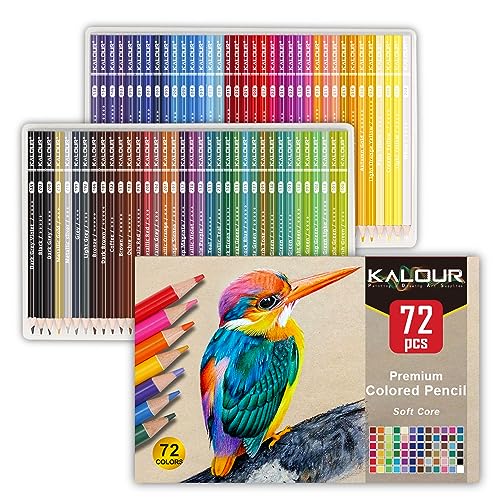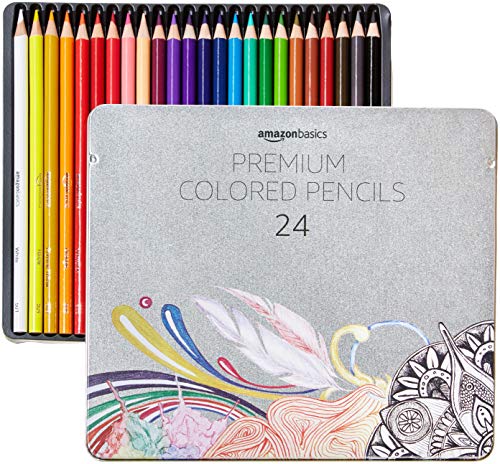What Questions Should I Ask My Child's School Teacher at Parent/Teacher Meetings?
Introduction to Parent/Teacher Meetings
Parent/teacher meetings serve as a crucial bridge between home and school, enabling a comprehensive understanding of a child's educational journey. These meetings provide a formal setting where parents and teachers can collaborate to discuss the child's progress, address any concerns, and forge strategies that promote the child's overall development. The purpose of these interactions is multifaceted, aiming not only to assess the child’s academic achievements but also to consider their social, emotional, and behavioral development.
During these meetings, parents have the opportunity to gain insights into their child's daily school life, learning habits, and areas where they may need additional support. Teachers, on their part, can provide valuable feedback on the student’s performance, elucidating both strengths and areas for improvement. This discourse helps in creating a shared understanding and in developing tailored interventions that cater to the child's unique needs.
To ensure that these meetings are as productive as possible, it is essential for parents to come prepared with a set of well-thought-out questions. Thoughtful inquiries can guide the conversation, ensuring that it remains focused and constructive. By asking pertinent questions, parents can uncover detailed information about their child's learning environment and experiences, which are instrumental in supporting their child's education at home.
Ultimately, parent/teacher meetings are a platform for reinforcing the vital partnership between parents and educators. Such collaboration is pivotal in fostering a supportive and enriching educational atmosphere for the child. Understanding the significance of these meetings and approaching them with a purposeful mindset can lead to better outcomes for the student’s academic and personal development.
```html
Understanding Academic Performance
Parent-teacher meetings present an invaluable opportunity for parents to gain an in-depth understanding of their child's academic performance. It is crucial to start by inquiring about your child's strengths and weaknesses. Ask the teacher to highlight specific areas where your child excels and where they might need additional support. This can provide a comprehensive overview of their academic standing and offer insights into tailored strategies that may facilitate improvement.
Another imperative question to ask revolves around any observable trends or changes in your child's grades. Are there subjects in which their performance has significantly fluctuated? These patterns could indicate underlying issues, whether they be related to the curriculum, teaching methods, or even factors outside of school that might be influencing academic outcomes. Understanding these trends is key to addressing potential problems proactively.
It is also essential to contextualize your child's performance by asking how they are faring relative to their peers. While every student learns at their own pace, comparing their progress to that of classmates can provide a benchmark to gauge where they stand within the broader academic landscape. This comparative insight can be useful in identifying whether additional resources or interventions are necessary.
Lastly, focus on specific areas that need improvement. Inquiring about subjects or skills that require further development allows for a targeted approach to enhancing academic performance. Whether it's a particular difficulty with mathematics, language arts, or other disciplines, understanding these specific needs will enable parents to seek out resources, such as tutoring or supplementary material, to support their child's learning journey.
```
Behavioral and Social Dynamics
Understanding your child’s behavior and social interactions at school is a critical component of their overall development and academic success. Knowing how they relate to their peers, handle conflicts, and participate in a classroom environment provides valuable insights into their social and emotional well-being. Inquiring about these aspects during parent-teacher meetings can reveal patterns and areas needing attention, fostering a supportive learning environment.
Start by asking about your child's interaction with peers: “How does my child get along with other students?” Understanding their social dynamics can help you gauge whether they are building healthy relationships or facing challenges. Additionally, it is important to discuss any behavioral concerns the teacher might have observed: “Have there been any behavioral issues or changes in my child’s behavior recently?” Identifying issues early can aid in addressing them promptly.
Participation in class is another key area of interest. Questions such as, “How actively does my child participate in classroom activities and discussions?” can highlight whether they are engaged and motivated in their learning environment. Participation levels can also be indicative of their comfort and confidence within the school setting.
Conflict resolution skills are essential for social development. Asking, “How does my child handle conflicts with peers?” can provide insight into their problem-solving and emotional regulation abilities. Effective conflict navigation is vital for maintaining positive relationships and reducing stress.
Moreover, understanding the teacher’s approach to classroom management can help you better support your child’s behavioral expectations. Inquire about the strategies used: “What methods do you use to manage classroom behavior and promote social skills development?” Knowing the teacher's techniques allows for consistency between home and school, reinforcing the desired behaviors and skills.
By addressing these aspects, you can collaborate with the teacher to support your child’s behavioral and social development effectively. Ensuring that your child is well-adjusted socially and behaviorally can significantly enhance their educational experience and personal growth.
```html
Learning Style and Engagement
Understanding your child's learning style and level of engagement in the classroom is critical to supporting their educational development. By identifying whether your child is a visual, auditory, or kinesthetic learner, you can tailor your assistance at home to better align with their natural preferences. At parent/teacher meetings, it is essential to probe into these aspects to gain a comprehensive understanding of how your child interacts with the curriculum.
You might begin by asking the teacher, "What type of learning activities does my child seem to excel in?" This will help you determine if your child is more adept at visual tasks, such as reading and diagrams, auditory activities, like listening to lectures or discussions, or kinesthetic tasks, which involve hands-on learning. Understanding this can guide you in creating an effective homework routine and selecting appropriate educational resources.
Another important question to consider is, "How engaged is my child during lessons?" Engagement is a key indicator of how invested your child is in the learning process. If the teacher notices high engagement, it indicates that the teaching methods align well with your child's learning style. Conversely, indications of disengagement may suggest the need for adjustments in approach, both at school and at home.
It is also valuable to inquire about any patterns in your child's attention and participation. Asking, "Are there specific times or subjects where my child’s attention wanes?" can highlight areas that may require additional support or alternative strategies. Recognizing these patterns will enable you to implement necessary interventions, improving focus and participation.
Insight into your child's learning style and engagement allows you to collaborate effectively with teachers, ensuring a cohesive and supportive educational environment. This collaboration not only enhances your child's learning experience but also fosters a more personalized education, tailored to their unique needs and strengths.
```
Homework and Study Habits
Understanding your child's homework habits and study skills is crucial in ensuring their academic success. Engaging in a conversation about these topics during parent-teacher meetings can offer valuable insights into how your child manages their assignments and where improvements can be made. Start by asking about the amount and type of homework assigned. Inquire whether the tasks vary in difficulty and relevance to the curriculum. This information helps you gauge whether the workload is balanced and if it aligns with school expectations.
Next, consider asking questions about your child's ability to manage homework. For instance, does your child complete assignments independently, or do they often require assistance? This can help identify if there are any underlying issues, such as time management difficulties, lack of understanding, or a need for additional support. Understanding these aspects allows you to work closely with the teacher to devise strategies that promote better homework management.
It is also essential to address any struggles your child encounters while doing homework. Ask the teacher if they have noticed specific areas where your child seems to struggle. This could include particular subjects, types of assignments, or general study habits. By pinpointing these issues, you can take steps to provide the necessary support at home and work with the teacher to address these challenges.
Finally, seek clarity on the teacher’s expectations for parental involvement in homework. Teachers have varying expectations on this front; some may encourage active parental participation, while others might prefer students to take full responsibility. Understanding these expectations will help you strike the right balance, ensuring you support your child's education appropriately without overstepping boundaries. Asking these targeted questions can pave the way for more effective study habits, ultimately contributing to your child's academic achievements.
Engaging with your child's teacher about the available support and resources can significantly boost your child's educational experience. It's essential to address these aspects during parent/teacher meetings to understand better the tools and aids at your disposal. By delving into these supports, you can foster a more enriching and supportive learning environment for your child, both at school and at home.
Additional Support from the Teacher
Begin the conversation by inquiring about the specific additional support the teacher can offer. Ask how they tailor their instructions to meet your child's unique needs and learning style. Clarify whether they provide one-on-one attention or small group activities to assist with challenging subjects. Understanding the teacher's approach will help you gauge the individualized support your child receives in the classroom.
School Resources
Another critical area involves the school's broader resources. Familiarize yourself with what the school offers in terms of tutoring, special education services, and counseling. Ask detailed questions about how these resources are accessed, the qualifications of the professionals involved, and how they can be integrated into your child’s study routine. This information is vital in ensuring your child can benefit from all available programs, enhancing their academic progress and emotional well-being.
Recommendations for At-Home Activities
Lastly, discuss recommendations for at-home activities or resources. Teachers are an excellent source of advice on supplementary materials, online resources, and practical exercises that can support your child’s learning outside the classroom. Inquire about specific activities that align with the curriculum and how you can reinforce subjects your child finds challenging. Effective collaboration between home and school can create a consistent and supportive educational experience, significantly benefiting your child's growth.
Questions about support and resources are central to understanding how well-equipped your child is to navigate their educational journey. The insights from these discussions will enable you to provide targeted support and encourage a collaborative effort in fostering your child’s academic and personal development.
Communication Methods and Frequency
Establishing effective communication with your child’s school teacher is fundamental to ensuring academic success and addressing any concerns promptly. A vital first step is to understand the preferred communication methods. Consider asking the teacher about their preferred way to stay in touch, whether it be through emails, phone calls, or classroom apps. Determining the most efficient and reliable means of communication can help maintain a steady stream of information.
In addition to identifying the method of communication, it is crucial to ascertain the frequency of updates you should expect regarding your child’s progress. Asking questions such as, "How often will you provide updates on my child's progress?" or "Will there be regular reports or informal check-ins?" can offer clarity and help align expectations. Understanding how and when updates will occur ensures that parents remain informed and can actively participate in their child's education.
Moreover, it's beneficial for parents to know how they can provide feedback or express concerns. Discussing with the teacher about the preferred protocol for sharing insights or any issues can facilitate a collaborative and supportive environment. Questions like, "What is the best way for me to share concerns or ask questions?" or "Are there specific times designated for discussing my child’s development?" can help streamline communication efforts.
Ultimately, establishing a robust communication framework with the teacher allows for timely and effective collaboration. It enables parents to stay informed about their child's academic journey, address any emerging issues promptly, and actively contribute to a nurturing educational experience. By asking the right questions about communication methods and frequency, parents can foster a proactive and engaging partnership with their child’s educator.
Long-Term Goals and Expectations
Discussing long-term goals and expectations during parent-teacher meetings is crucial in fostering a shared vision for your child's future. By engaging in a dialogue about your child's academic and personal development, you can gain valuable insights into both the teacher's plans and your role in supporting these objectives.
Begin the conversation by asking about the teacher's expectations for your child by the end of the school year. Inquire how these goals align with the curriculum and what benchmarks your child is expected to meet. Understanding these expectations will enable you to support your child's progress effectively and help them achieve these milestones.
To supplement your child's learning during school breaks, ask the teacher about recommended summer learning activities. This could include reading lists, online resources, or educational games that align with what they've been learning in class. Keeping your child intellectually engaged during the summer not only reinforces their current knowledge but also helps them stay prepared for the upcoming school year.
Another important topic is how to prepare your child for the next academic step. Ask the teacher what skills or knowledge your child should develop to be ready for the next grade or level. This could involve focus areas like reading comprehension, mathematical reasoning, or social skills. Understanding these preparatory steps helps in creating a supportive learning environment at home and ensures a smooth transition to the next stage of your child's education.
By discussing long-term goals and expectations, you establish a collaborative approach with your child's teacher. This partnership ensures that all parties are aligned in guiding your child's academic journey, ultimately fostering a more cohesive and supportive educational experience.







